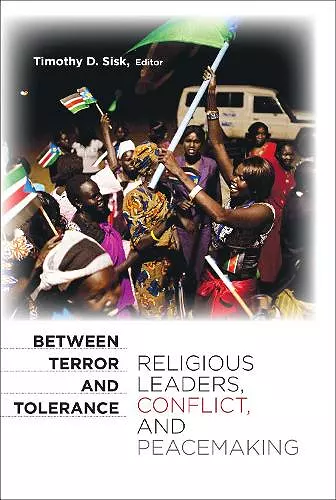Between Terror and Tolerance
Religious Leaders, Conflict, and Peacemaking
Format:Paperback
Publisher:Georgetown University Press
Published:21st Nov '11
Currently unavailable, and unfortunately no date known when it will be back

This clearly focused volume moves beyond easy generalizations about religion and conflict. The excellent case studies are linked to an overarching framework that highlights the ambivalence of religion with regard to conflict. Readers interested in how contemporary conflicts are shaped by religion should read this book. -- Terrence Lyons, associate professor, Institute for Conflict Analysis and Resolution, George Mason University
Civil war and conflict within countries is the most prevalent threat to peace and security in the opening decades of the twenty-first century. This title examines the varied roles of religious leaders in societies divided by ethnic, racial, or religious conflict.Civil war and conflict within countries is the most prevalent threat to peace and security in the opening decades of the twenty-first century. A pivotal factor in the escalation of tensions to open conflict is the role of elites in exacerbating tensions along identity lines by giving the ideological justification, moral reasoning, and call to violence. "Between Terror and Tolerance" examines the varied roles of religious leaders in societies deeply divided by ethnic, racial, or religious conflict. The chapters in this book explore cases when religious leaders have justified or catalyzed violence along identity lines, and other instances when religious elites have played a critical role in easing tensions or even laying the foundation for peace and reconciliation. This volume features thematic chapters on the linkages between religion, nationalism, and intolerance, transnational intra-faith conflict in the Shi'a-Sunni divide, and country case studies of societal divisions or conflicts in Egypt, Israel and Palestine, Kashmir, Lebanon, Nigeria, Northern Ireland, Sri Lanka, Sudan, and Tajikistan. The concluding chapter explores the findings and their implications for policies and programs of international non-governmental organizations that seek to encourage and enhance the capacity of religious leaders to play a constructive role in conflict resolution.
ISBN: 9781589017825
Dimensions: unknown
Weight: 408g
256 pages